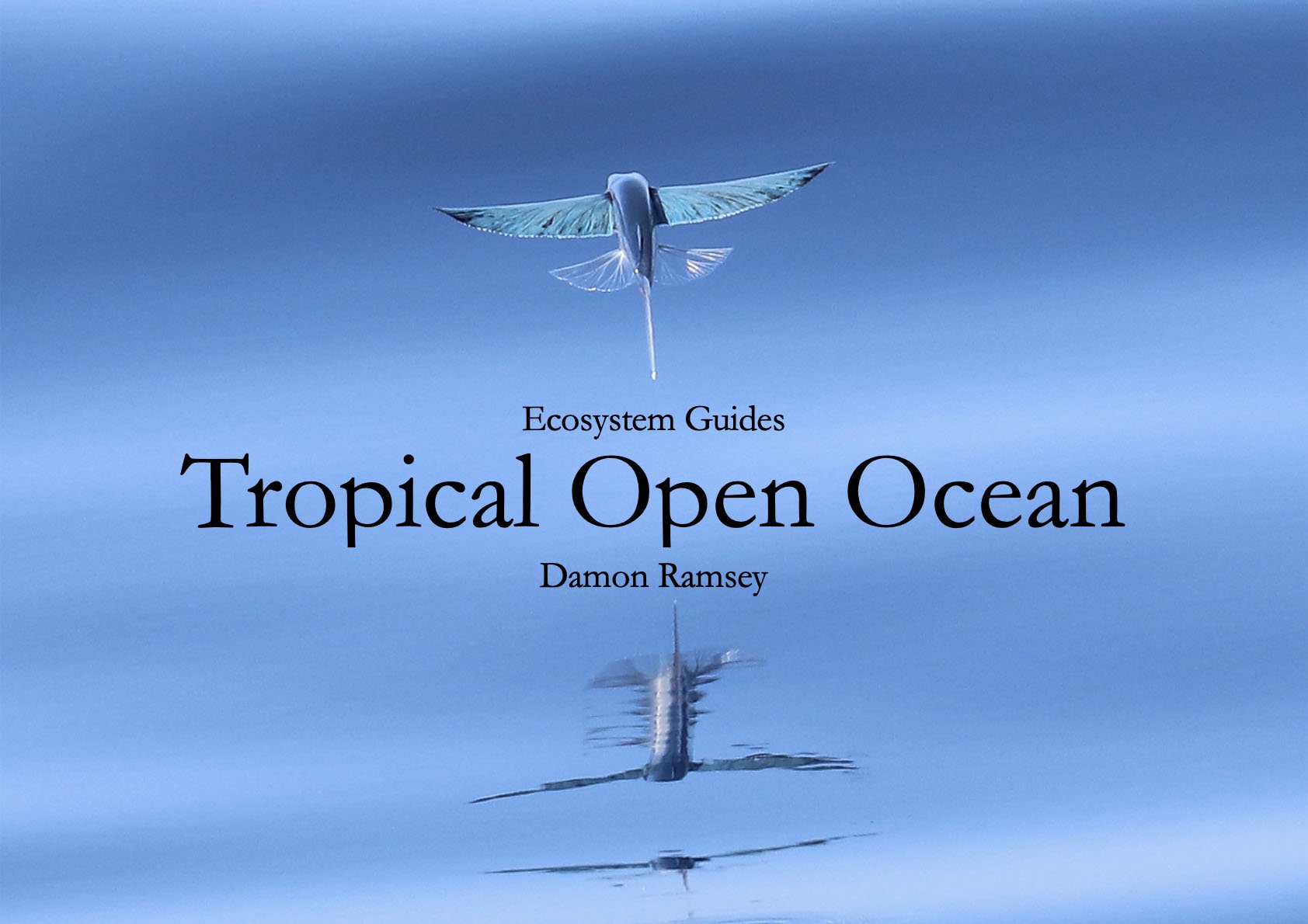ecosystem-guides.com
....exploring the planet's ecosystems
INDO-MALAYAN
Mangrove
The extensive mangroves of the tropical Asian coasts include the largest mangrove area in the world...
There is only one species in this genus Nypa - the ‘Nipah Palm’, ‘Mangrove Palm’, Nypa fruticans. It is a large but ‘squat’ palm tree growing out from thick base(s). Found mainly in mangroves in estuaries, often dominating in massive stands, mainly throughout tropical Asia, and into New Guinea, but also extends to a few spots in Queensland and the Northern Territory. The fruits may wash up onto beaches: it is large and woody, looks somewhat like a Pandanus fruit, angular at one end, fibres at one end. The seeds are eaten in dessert in tropical Asia.
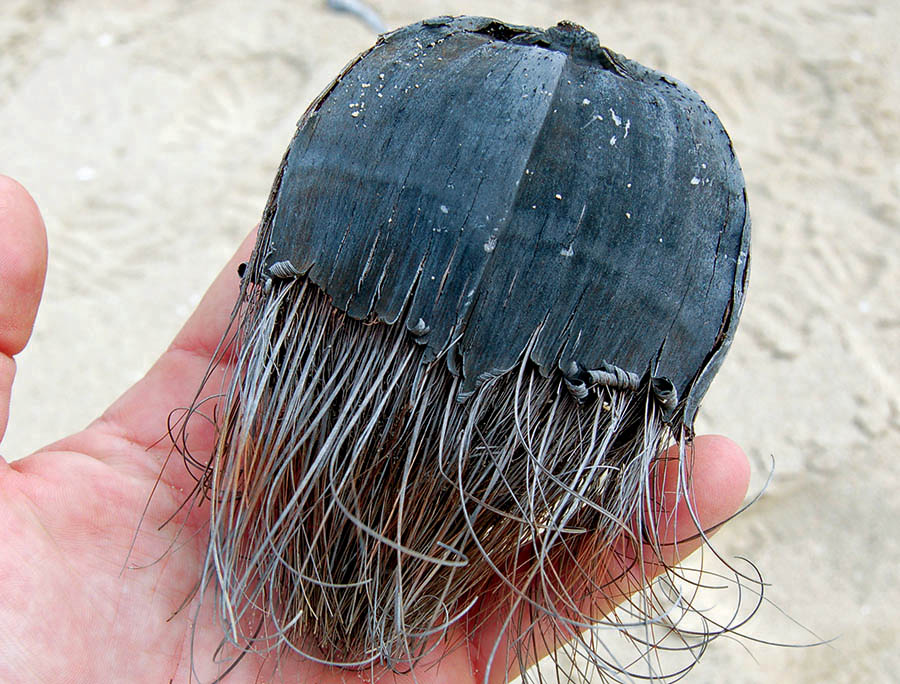
The family Lythraceae contains the 'shaving brush'-flowered Sonneratia caseolaris. This mangrove can host incredible flashing displays of fireflies after dark
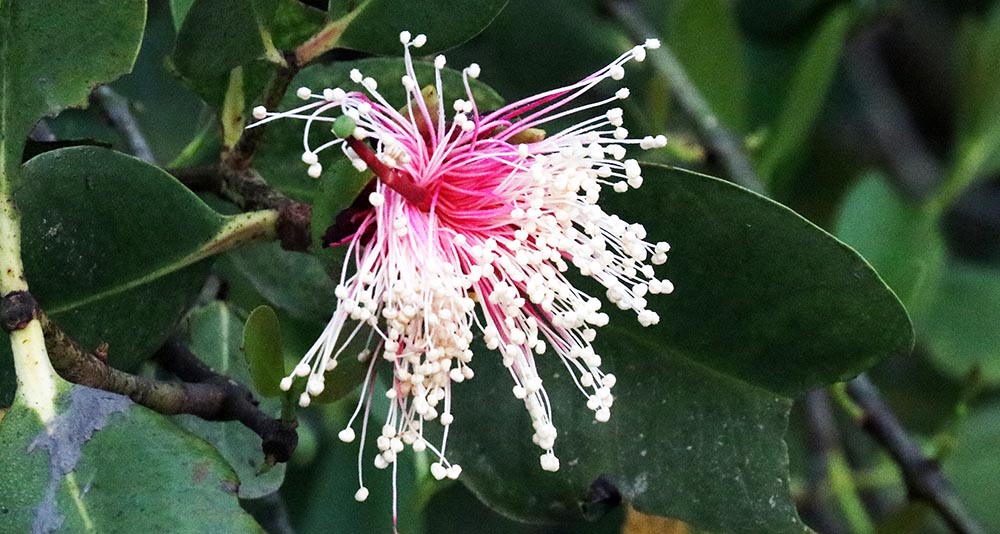 (Sundarbans, Bangladesh)
(Sundarbans, Bangladesh)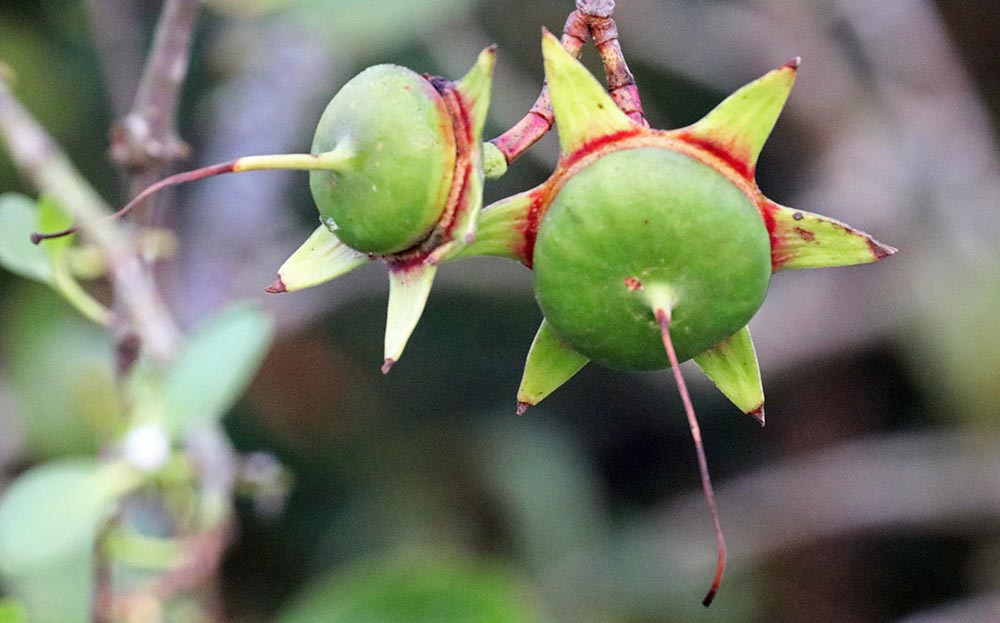 (Sundarbans, Bangladesh)
(Sundarbans, Bangladesh)There is a large range of crabs in the tropical Asian mangroves, including Fiddler Crabs, tiny crabs where the males have one extremely enlarged claw. Below is the 'Rose Fiddler Crab' Tubuca rosea.
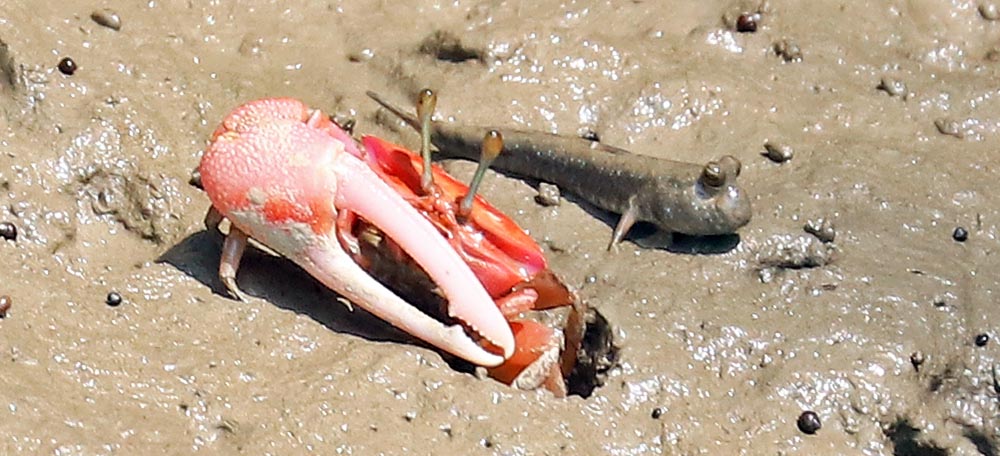 (Sundarbans, Bangladesh)
(Sundarbans, Bangladesh)Being an intertidal fish that comes out of the water into land, the Mudskippers are the most commonly noticed fish.
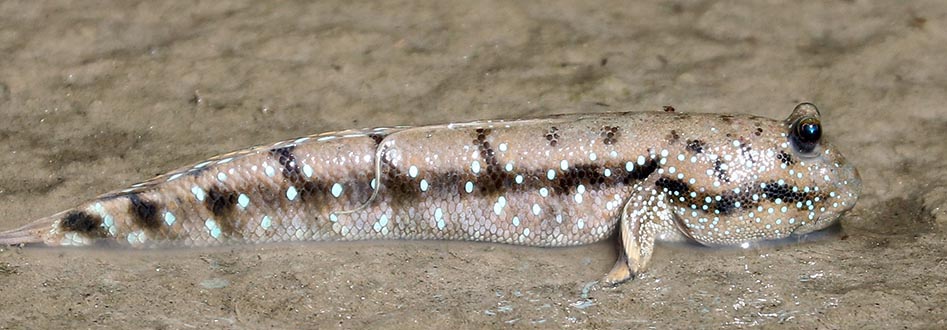
Chrysopelea paradisi, 'Paradise Tree Snake', 'Paradise Flying Snake'. Strikingly coloured snake that has been seen jumping and gliding between trees. Widespread throughout tropical Asia, from Bangladesh up to Thailand, and down to Sulawesi.
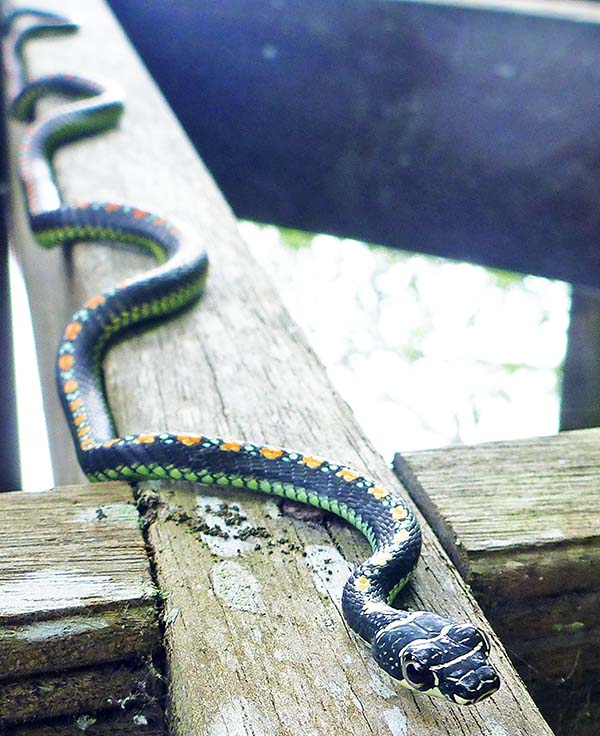 (Labuk Bay, Malaysia)
(Labuk Bay, Malaysia)The muddy areas in and around mangroves are good for various waders.
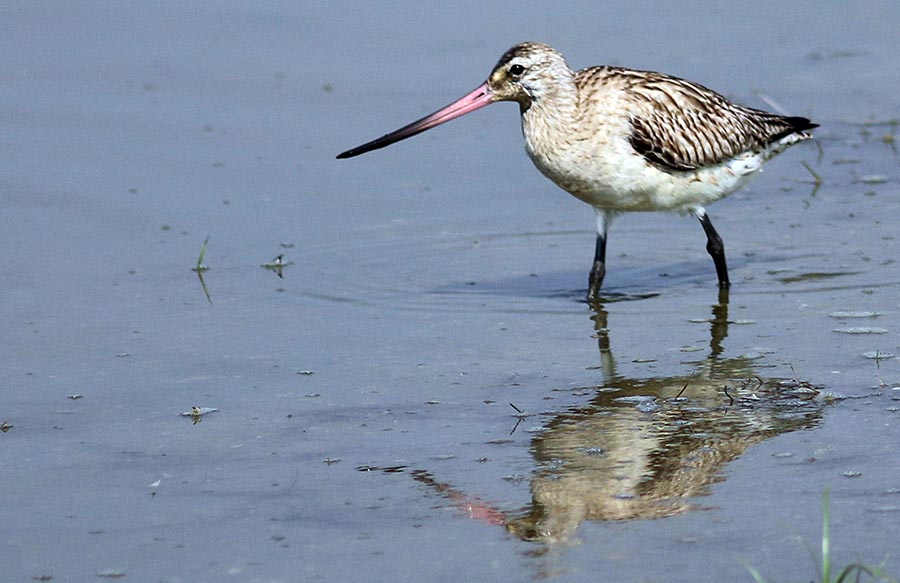 'Godwit Sandpiper', (Bundala, Sri Lanka)
'Godwit Sandpiper', (Bundala, Sri Lanka)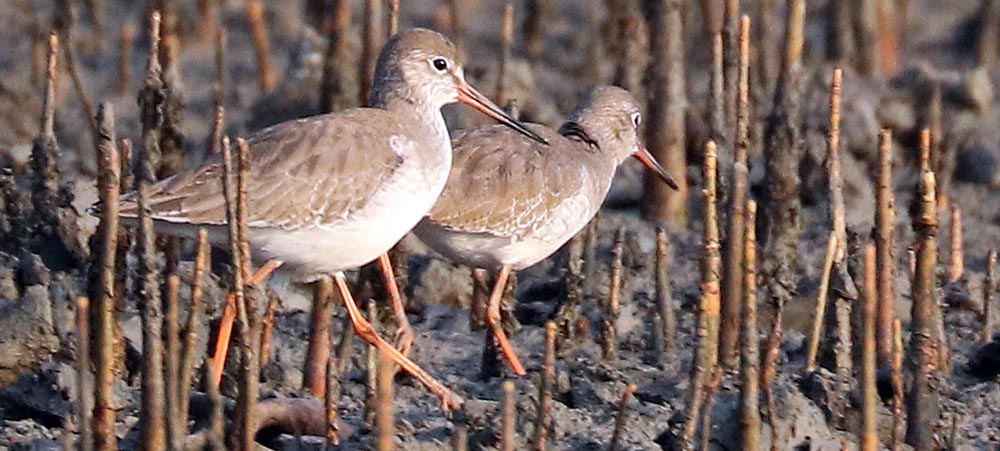 Tringa totanus, 'Redshank', (Sundarbans, Bangladesh)
Tringa totanus, 'Redshank', (Sundarbans, Bangladesh)Among the tallest birds of the Asian mangroves are the 'storks' of the family Ciconiidae. Below is Leptoptilos javanicus, 'Lesser Ajutant Stork'.
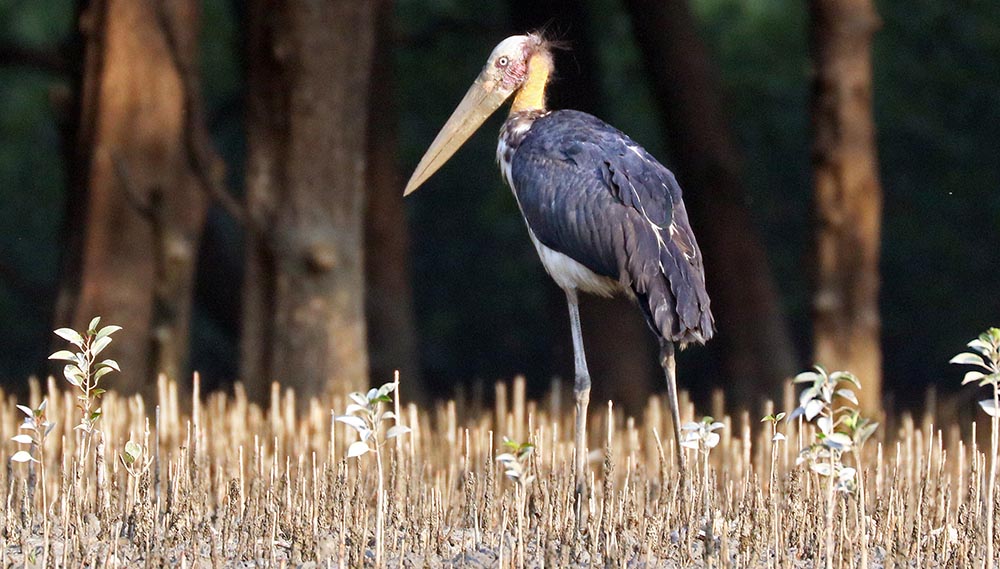 (Sundarbans, Bangladesh)
(Sundarbans, Bangladesh)The family Ardeidae contains all of the Herons and Egrets. This is an obvious and diverse group in the mangroves.
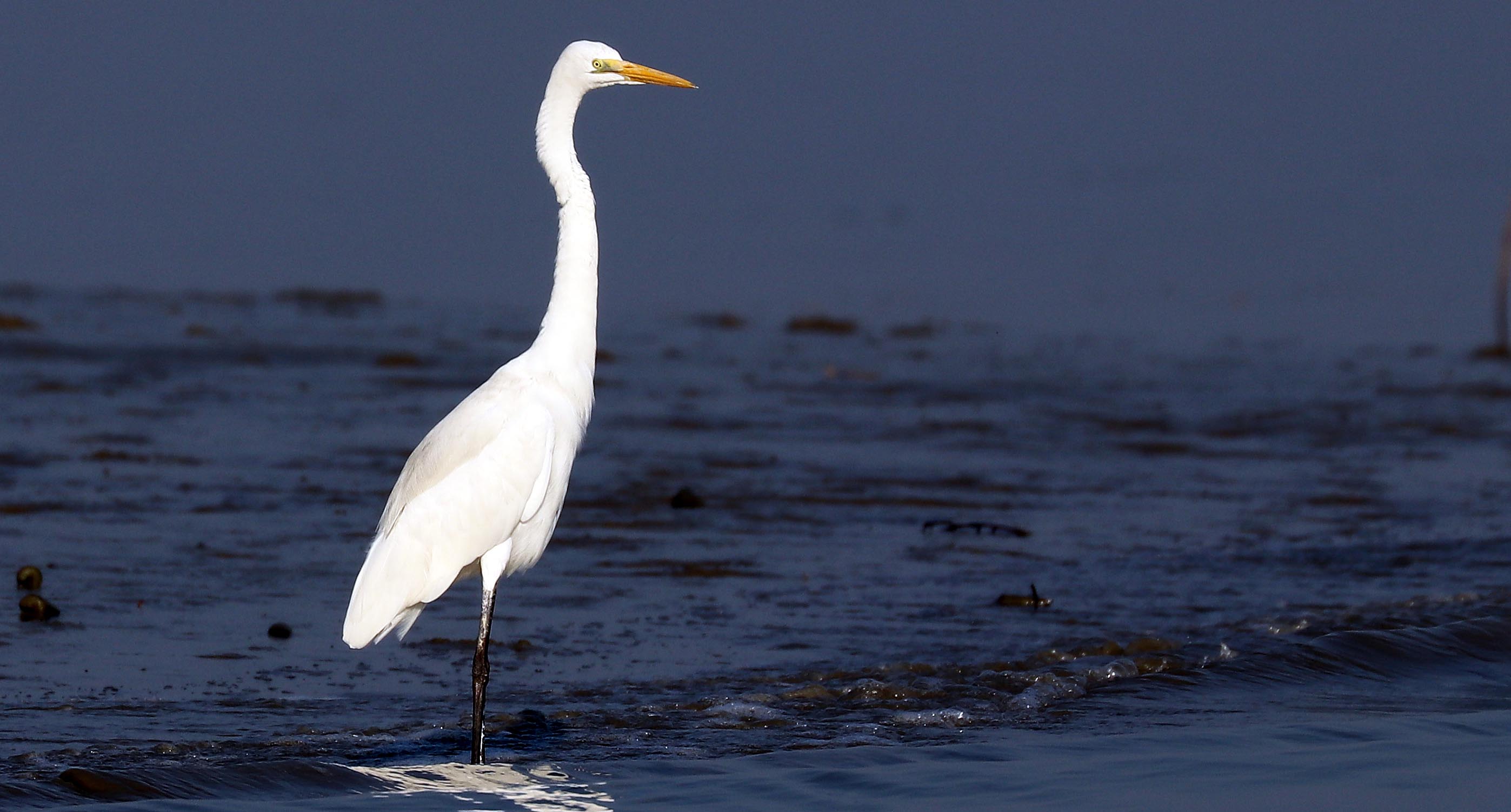 'Great Egret', (Sundarbans, Bangladesh).
'Great Egret', (Sundarbans, Bangladesh).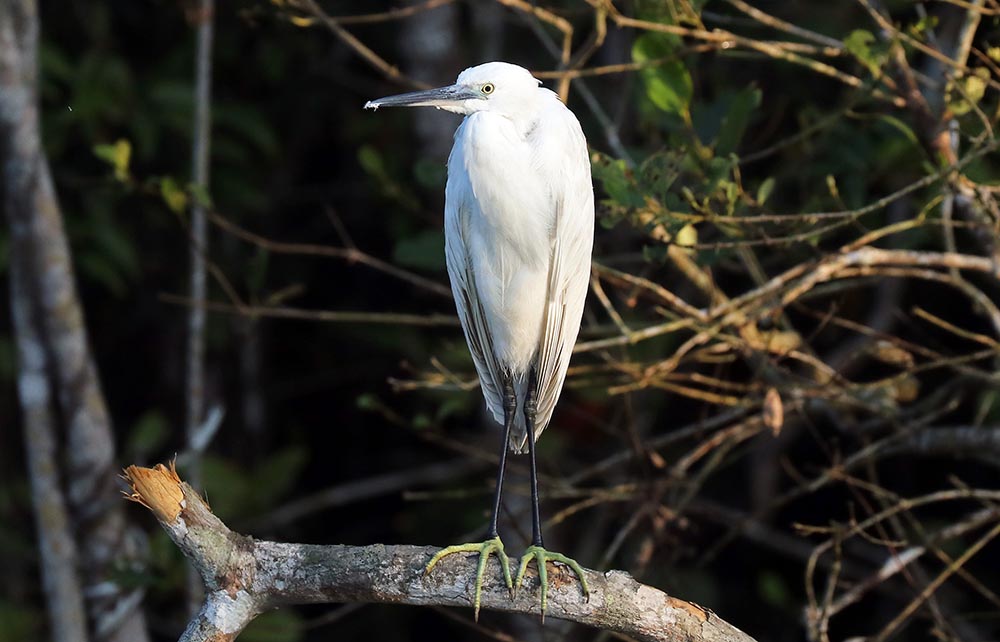 'Little Egret', (Sundarbans, Bangladesh).
'Little Egret', (Sundarbans, Bangladesh).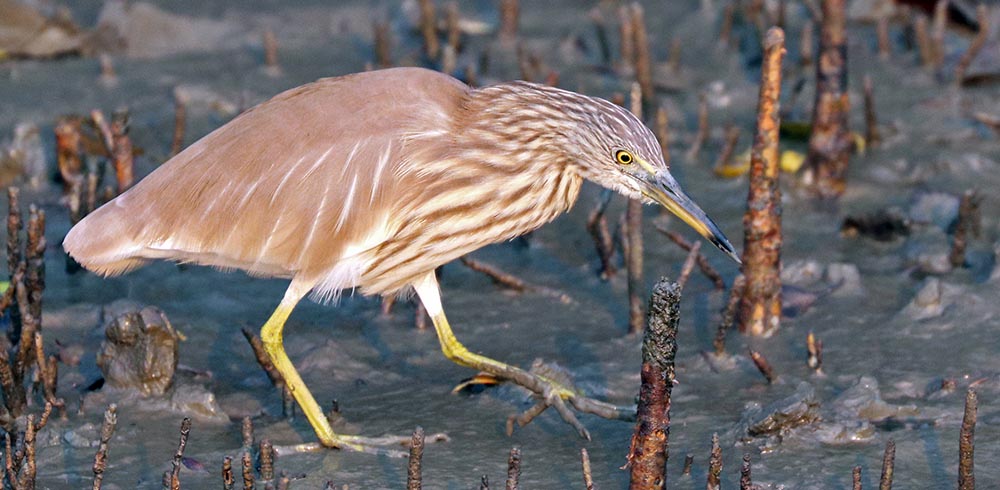 'Indian Pond Heron', (Sundarbans, Bangladesh).
'Indian Pond Heron', (Sundarbans, Bangladesh).Birds of prey typically seen around the mangroves include:
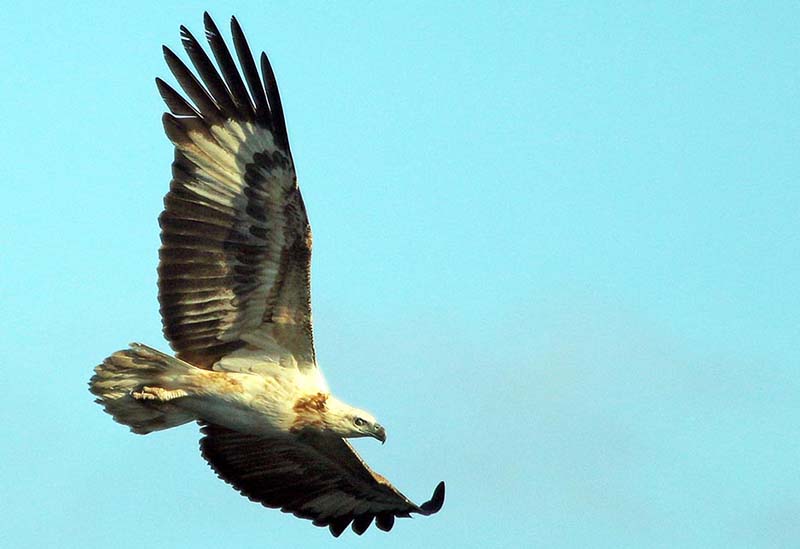 juvenile 'White-bellied Sea-eagle'(Rinca, Indonesia).
juvenile 'White-bellied Sea-eagle'(Rinca, Indonesia).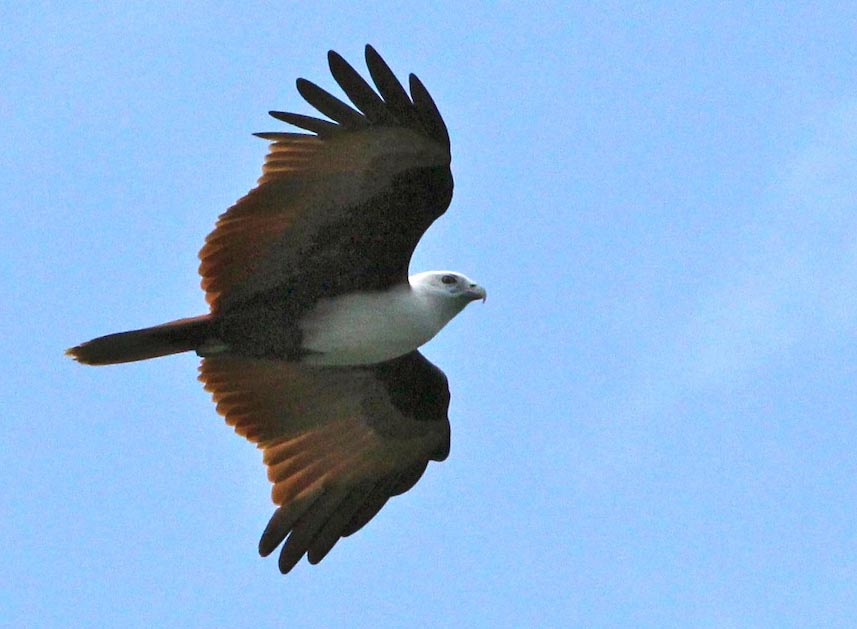 'Brahminy Kite', (Rinca, Indonesia)
'Brahminy Kite', (Rinca, Indonesia)The family Alcedinidae of the Kingfishers include some stunning species in the tropical Asian mangroves.
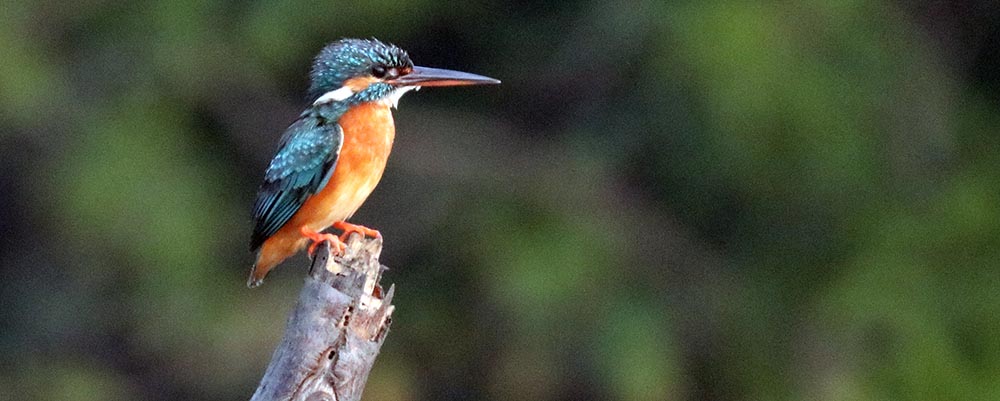 'Common/Eurasian Kingfisher', (Sundarbans, Bangladesh)
'Common/Eurasian Kingfisher', (Sundarbans, Bangladesh)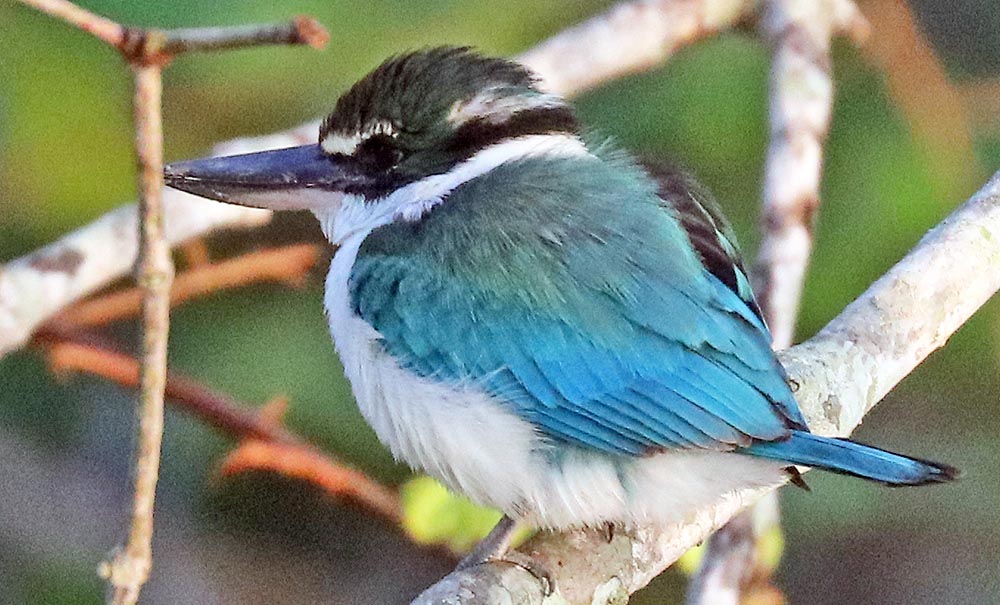 'Collared Kingfisher', (Sundarbans, Bangladesh)
'Collared Kingfisher', (Sundarbans, Bangladesh)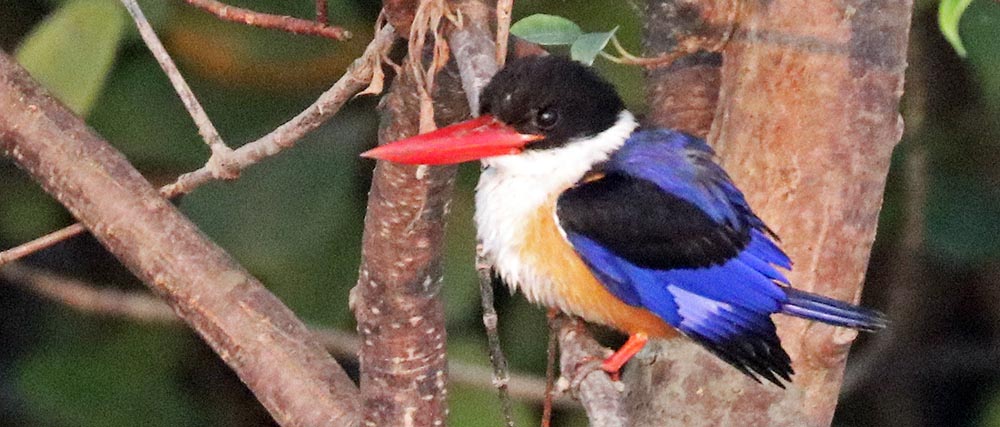 'Black-capped Kingfisher', (Sundarbans, Bangladesh)
'Black-capped Kingfisher', (Sundarbans, Bangladesh)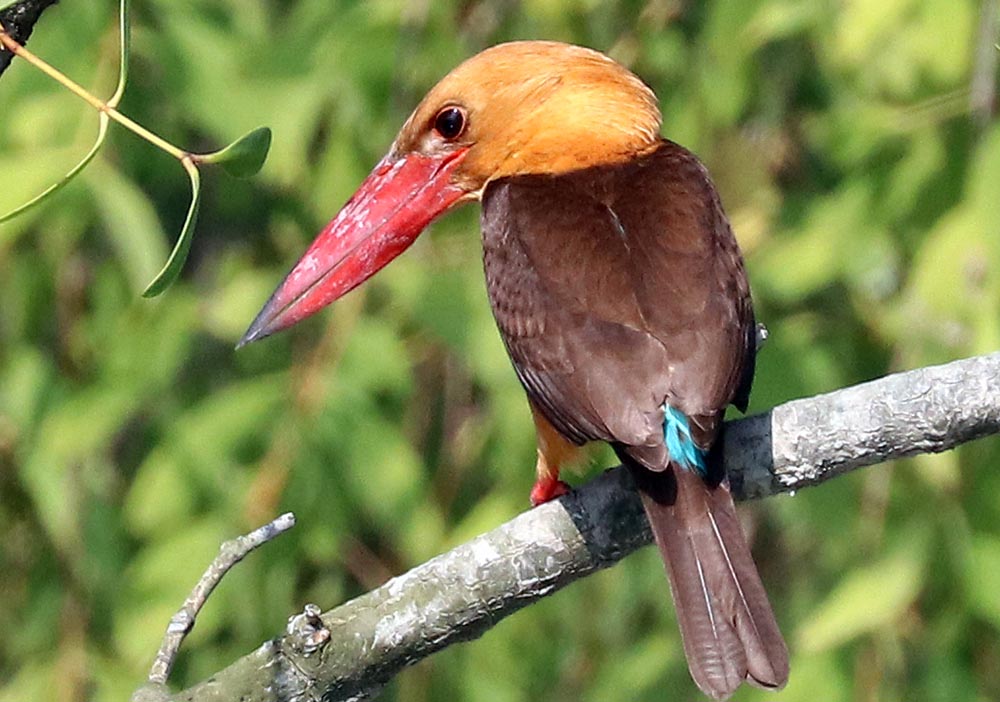 'Brown-winged Kingfisher', (Sundarbans, Bangladesh)
'Brown-winged Kingfisher', (Sundarbans, Bangladesh)Primates extend from the adjacent rainforest into the mangroves. One species is considered more adapted to this habitat than others: Macaca fascicularis, the 'Long-tailed/Crab-eating Macaque'.
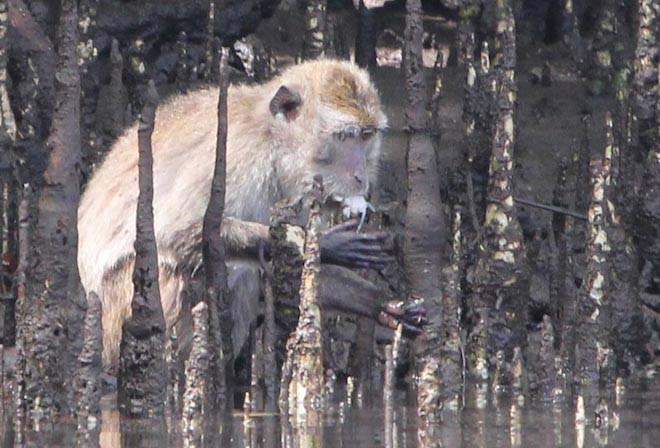 (Rinca, Indonesia)
(Rinca, Indonesia)The family Cervidae contain the Deer, mammals usually found in open forest and woodlands, however one species can be found trapsing through mangroves in India, the widespread Axis axis, 'Chital', 'Spotted Deer'.
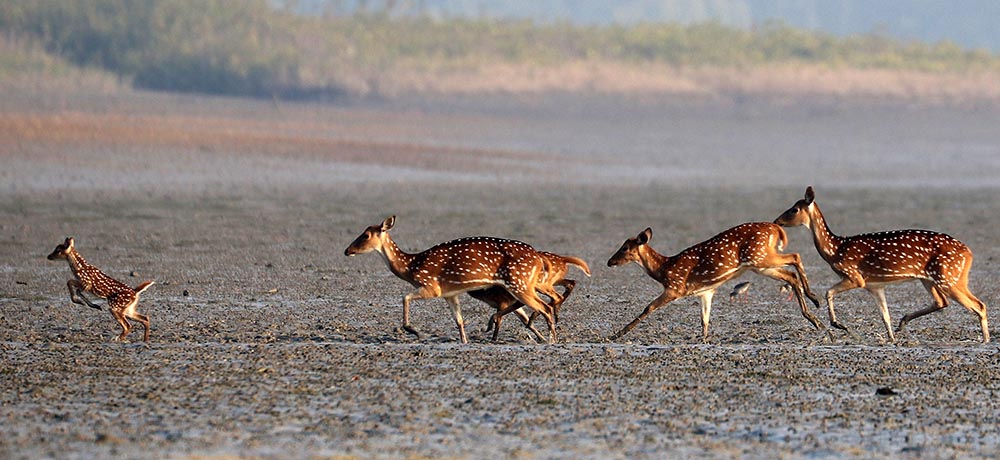 (Sundarbans, Bangladesh)
(Sundarbans, Bangladesh)Of the mammalian order Carnivora, members of the family Mustelidae are occasionally seen, including: Aonyx cinereus, 'Asian/Oriental Small-clawed Otter'.
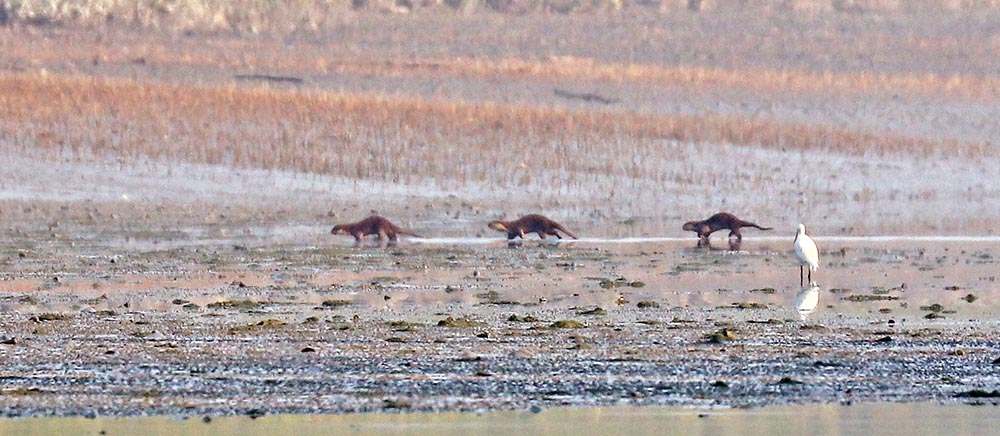 (Sundarbans, Bangladesh)
(Sundarbans, Bangladesh)The 'Smooth-coated Otter' Lutrogale perspicillata, are trained by local fisherman to chase fish into nets.
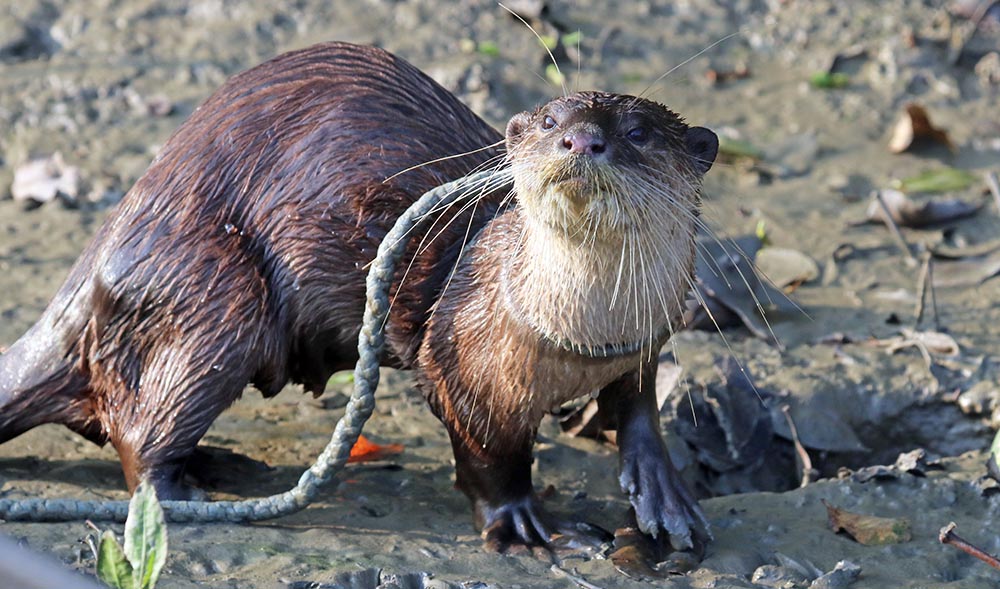
The largest predator, the rarely seen Tiger, lives in mangroves: but only in the Sundarbans where they are infamous for eating local people.
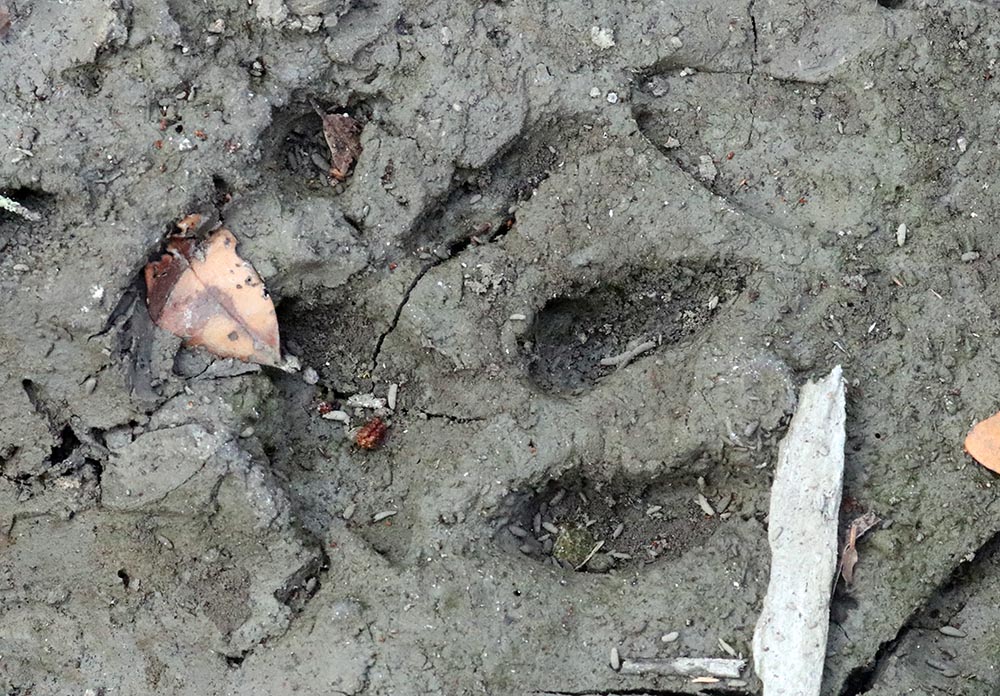 Tiger track, (Sundarbans, Bangladesh)
Tiger track, (Sundarbans, Bangladesh)Places to experience Asian mangroves
include: Labuk Bay in Malaysia, Rinca in Indonesia, and the largest area of mangroves, the Sundarbans in Bangladesh & India.
 Otter fisherman, (Sundarbans, Bangladesh)
Otter fisherman, (Sundarbans, Bangladesh)

